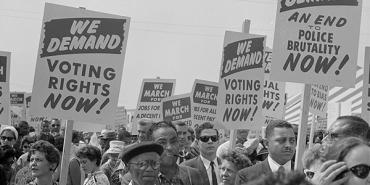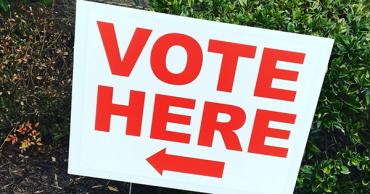Sharon DeSilva is terrified of flying. But she is boarding a plane this week to travel from New York to Georgia, to protect citizens’ constitutional right to cast a ballot in this year’s election. “Martin Luther King Jr. died fighting for our rights,” she says. “When I think of someone like him, I can definitely overcome my fear in order to help make a change in this world.”
DeSilva, a child services attorney and vice president of the Public Employees Federation in New York state, is one of several PEF members volunteering to provide nonpartisan election protection in Georgia. Their experience as attorneys and legal professionals will help them advise voters who may be told they are at the wrong polling station, or that their identification papers are not sufficient, or that their names have been purged from the voting rolls. Other legal experts—including some AFT staffers—will provide call-in help from the Washington, D.C., area to Georgia and other states across the country.
The AFT is one of nearly 100 partners supporting the effort, which is organized by the Lawyers’ Committee for Civil Rights Under Law, along with Common Cause.
“The news coming out of Georgia has been particularly horrific about the purging of voters,” says Estelle Davis, another PEF member and volunteer. The governor’s race is especially troubling: Democratic candidate Stacey Abrams, who the AFT has endorsed, would be the first African-American woman elected to that position and is running a strong campaign. But her opponent, Brian Kemp, is currently Georgia’s secretary of state, and his responsibilities in that position have allowed him to restrict voting in a number of ways that would ultimately favor his election. Here are some of the details:
- Kemp’s “exact match” law requires that voter registration applications precisely match all other government records, right down to details like a dropped hyphen in a last name. The measure has stalled more than 53,000 registration applications, 70 percent of them from black voters.
- Over the last six years, Kemp’s office has canceled more than 1.4 million voter registrations in what it describes as standard list maintenance.
- Voting machine malfunctions in two counties have reportedly switched Abrams votes to Kemp, prompting the Georgia NAACP to file official complaints.
- Last summer, a white consultant suggested a predominantly black county close 7 of 9 polling stations to save money: Residents called foul, and the Board of Elections voted against the measure.
PEF’s Davis knows firsthand how important poll workers and election protection agents can be: Last Election Day in Brooklyn, she was turned away from the polls herself. “I was told my name had been purged,” she says. “It was infuriating.” Davis says she was lucky she had informed and helpful poll workers who enabled her to vote by provisional ballot, but not every voter understands that they have that option.
For DeSilva, exercising one’s democratic right is also deeply personal. She grew up “extremely poor,” and immigrated to the United States from Trinidad and Tobago when she was 11 years old. She couldn’t wait to become a citizen and vote, she says, and wants to be sure everyone has that opportunity. “To me, it’s a very sacred activity that deserves protection.”
“Not that long ago, people were taking to the streets and being beaten by nightsticks for the right to vote,” says Davis. “So if I can show up with a clipboard and try to make sure that still happens, I am happy to do that.”
[Virginia Myers]


